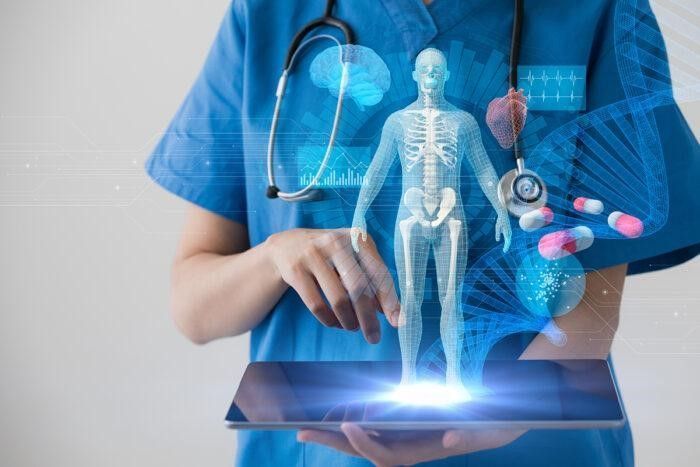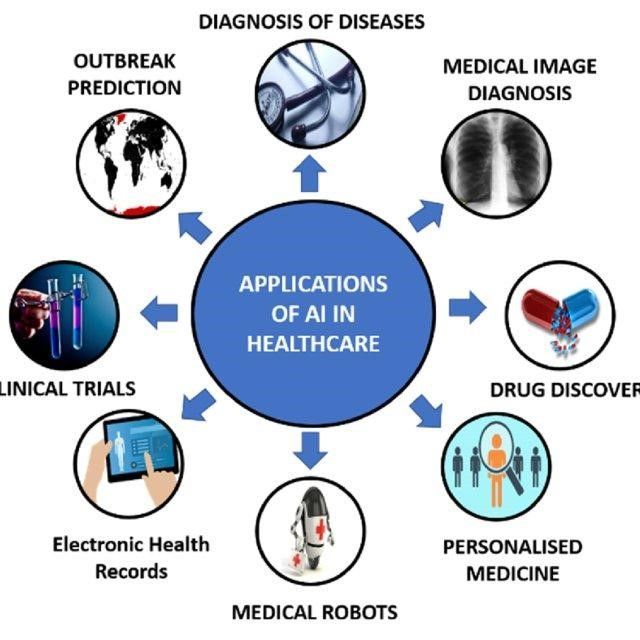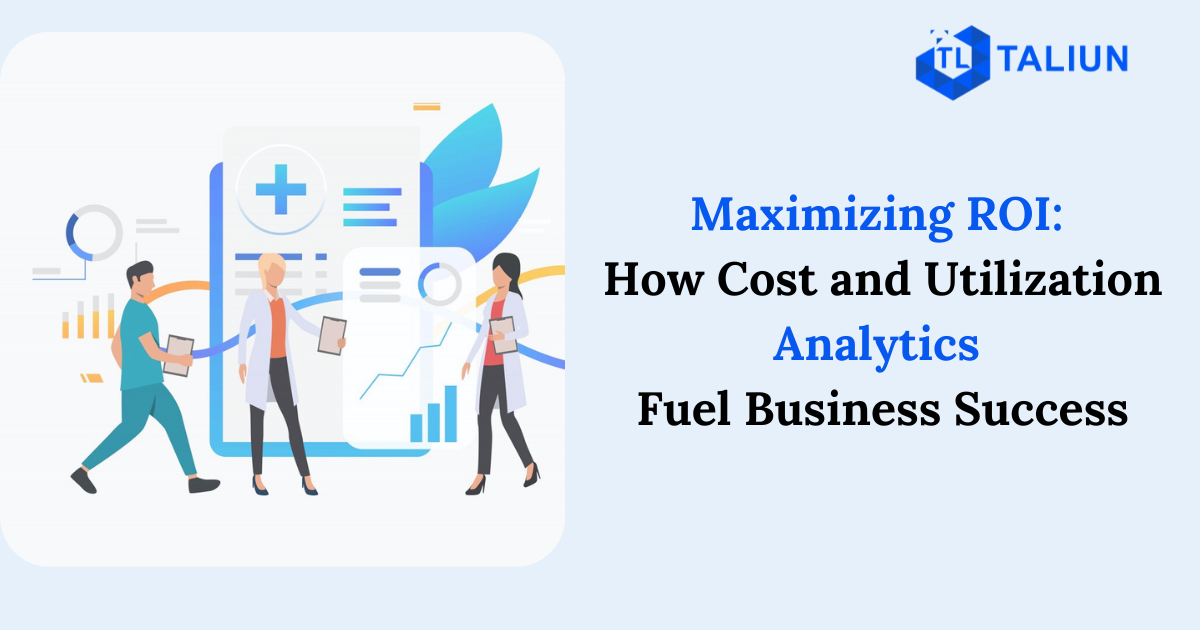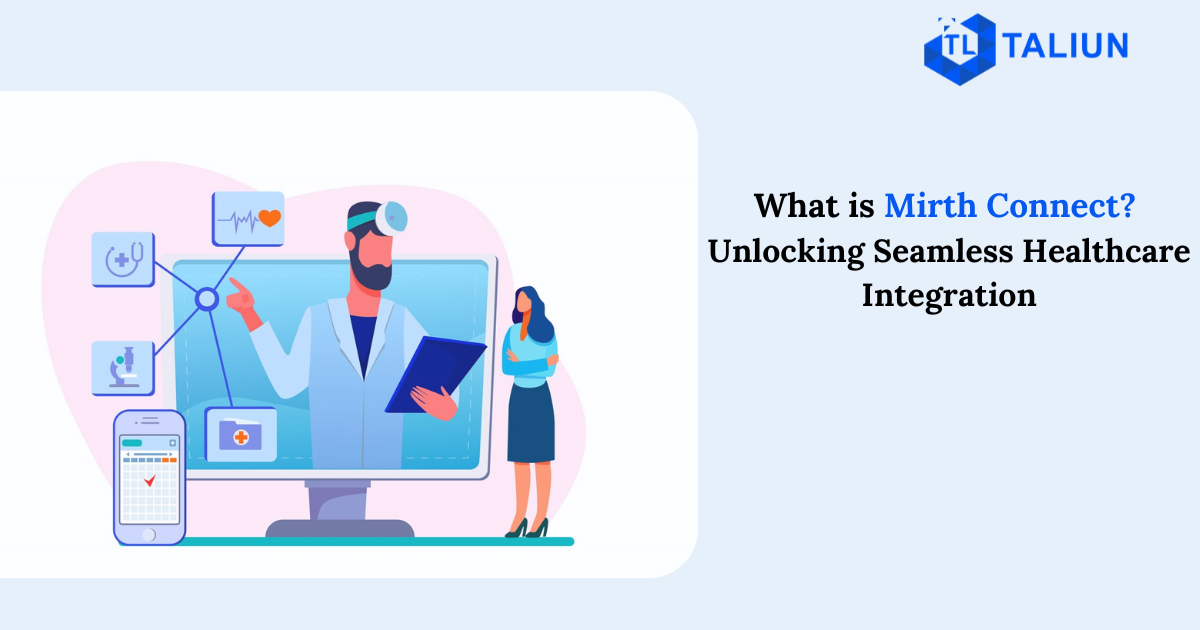Health Benefits and Applications of Artificial Intelligence in Medicine
To address the aforementioned difficulty, AI and ML technologies are extremely helpful. They can lessen the requirement for personnel while running public health initiatives. The development of AI in healthcare is moving slowly because of unreliable and insufficient data.
Data is now being gathered from a variety of sources, including the internet, the cloud, and sensors. These sources offer a wealth of knowledge. To process such massive datasets, AI and ML technologies are gaining traction.
Data collection, cloud storage, and processing are all automated and digital processes. Every task that was formerly carried out by humans in medicine and healthcare is now completed by artificial intelligence.

The top medical applications of AI
If you want to safely integrate AI into healthcare operations, you need to be aware of these key advantages of AI in medicine.
1: Boosts Workforce Productivity in the Health Sector
It is one of the advantages of AI in healthcare. In order to automate processes and increase staff productivity, AI in medicine is expected to be profitable in the future. AI-powered systems, gadgets, and apps will track, evaluate, and record patient health data collected from various sources automatically.
AI applications in the healthcare industry have eliminated the burden of paperwork and significantly reduced labour time. Therefore, AI-powered devices let service providers concentrate more on important tasks.
You can approach a good healthcare app development company to have a digital healthcare solution that improves the brand's value and provides the best financial returns.
2. Diagnostic and Screening
The application of artificial intelligence in healthcare for tracking symptoms and disease detection has grown in popularity globally. Intelligent AI-powered software programme that use machine learning (ML) and deep learning to assess medical symptoms and learn from photographs to correctly identify the disease kind.
In order to make quicker and more accurate clinical diagnostics, artificial intelligence in medicine (healthcare) is used.
3. Increases customer compliance
AI-based solutions find gaps in people's health-seeking activity and assist healthcare professionals in identifying patients who might stop using a particular health programme or therapy.
4. Online medical assistants
AI-powered virtual health assistants let patients receive routine checks remotely and lighten the strain on doctors. They serve as a channel of communication between doctors and patients.
AI-based interactive chatbots in healthcare provide patients with 24 hours of healthcare services
1. Online Counselling
Never hesitate to attend your scheduled medical appointments. There is no need to stand in line to make an appointment. But healthcare AI technology nailed it.
You can benefit from a healthcare app development company AI mobility solution. Without having to wait in the cabin, their AI technology enables you to schedule a time slot for treatment.
2. Health Monitoring
One of the most popular AI applications in the medical sector is health monitoring. You can track heart rate, pulse, temperature, and other crucial health metrics with AI devices or applications.
The top healthcare AI smartphone apps support doctors in keeping an eye on ICU patients' health problems. Additionally, medical mobile applications notify doctors when a patient's health has improved.
These are the most effective AI uses in medicine. AI plays a wide range of functions in healthcare, and it has amazing medical benefits.
AI's advantages in healthcare and medicine
The use of artificial intelligence in medicine has effectively advanced over time. It has a number of advantages for those who provide healthcare services.
The principal uses of AI in healthcare are:
- Medical evaluation
- Drug research
- Storage of medical records
- Obtaining and processing data
- Advanced robotic surgery
- Fitbits and virtual healthcare aides
These are just a handful of applications for AI in healthcare. With the rise in demand for improved healthcare services, AI advances in the healthcare industry are rapidly expanding. The future of AI in healthcare will explore digital prospects for healthcare service providers and have an immeasurable influence.
The Future of AI in Medicine:
Artificial intelligence technologies will play a major role in the future of the medical field. It is projected that AI-based supply-chain management, physician-focused, admin-friendly, and device monitoring apps will dominate the healthcare industry in the upcoming years.
Applications of artificial intelligence (AI) have an impact on the healthcare industry across a range of areas.
- Medical record management
- Online doctor consultations
- Disease identification
- Medication research
- Telemedicine
- Imaging and remote surgery
Due to all this, healthcare will be more cooperative and participatory in the future thanks to the use of AI, ML, deep learning, natural language processing, speech recognition, and computer vision.
Conclusion
To boost automation and deliver better patient care, the healthcare industry needs artificial intelligence services and solutions. In medicine, artificial intelligence is being developed with the support of public health and medicine. Not only will AI be the centre of attention, but it will also play a bigger role in the development of novel public health solutions.
The range of sectors in which healthcare app development companies offer artificial intelligence services is continually growing. AI specialists are creating sophisticated AI solutions to ensure a plethora of options.
Subscribe to our Blogs
Contact Us
Thanks for subscribing! You'll now receive our latest blog posts straight to your inbox.
Please try again later.
Locations
US:
39899 Balentine Drive,Suite 200
Newark, CA 94560
Phone: +1-(408) 883 - 7902
India:
Ven Business Center I, First Floor, Baner - Pashan Link Rd, Pashan, Pune, Maharashtra 411021
Phone: +91 83293 46166
Copyright 2024 Taliun | Privacy Policy
Quick Links
We use cookies to ensure that we give you the best experience on our website. To learn more, go to the Privacy Page.To know more about Privacy Policy of Taliun LLC click on this Link





